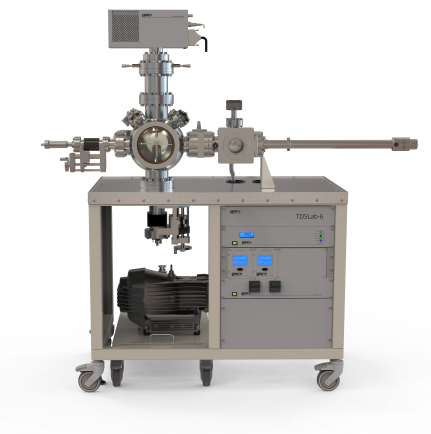Hiden Analytical, a global leader in scientific instrumentation, is excited to announce the release of the TDSLab Series, a next-generation suite of thermal desorption spectrometry systems designed to meet the rigorous demands of modern scientific research and industrial applications. The TDSLab Series includes the TDSLab-6, TDSLab-9, and TDSLab-20 systems, each offering enhanced precision, reliability, and versatility.

Image Credit: Hiden Analytical
Key Features of the TDSLab Series:
- TDSLab-6: Specifically designed for hydrogen embrittlement and material degradation studies, this system features exceptional hydrogen detection capabilities with a 6 mm diameter triple filter quadrupole mass spectrometer.
- TDSLab-9: Optimized for high-mass analysis in photovoltaic and semiconductor research, capable of handling complex samples up to 20,000 amu with a 9 mm diameter triple filter quadrupole.
- TDSLab-20: Engineered for precision isotope analysis in nuclear fusion research, offering ultra-high resolution with a 20 mm diameter triple filter quadrupole mass spectrometer.
The TDSLab Series is equipped with advanced features such as high precision measurement, versatile sample handling, real-time data monitoring, and ultra-high vacuum environments, ensuring comprehensive analysis of material properties under various conditions.
Applications of the TDSLab Series:
- Thin film research
- Photovoltaic studies
- Hydrogen in metals analysis
- Semiconductor research
- Nuclear fusion research
“The TDSLab Series represents a significant advancement in thermal desorption spectrometry,” said Colin Robertson, Sales Director at Hiden Analytical. “These systems provide researchers with the tools they need to achieve groundbreaking results and push the boundaries of their work. We are proud to offer such innovative solutions to the scientific community.”
Frank Sun, General Manager of Extratech Beijing, Hiden Analytical’s partner in China, added, “The TDSLab Series is a game-changer for researchers across various fields. Its advanced capabilities and precision will undoubtedly enhance the quality and scope of scientific research.”